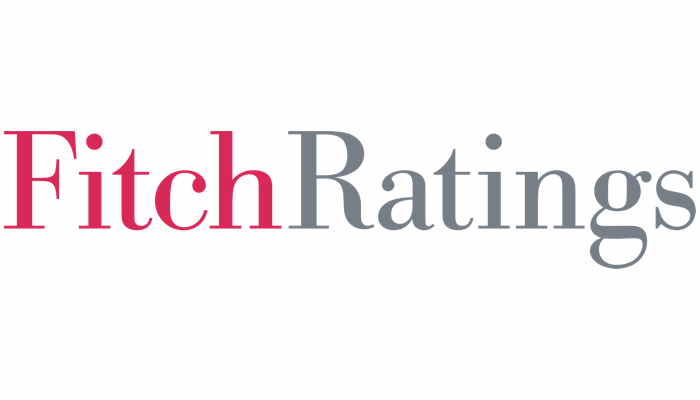

Fitch Ratings, a prominent entity in credit evaluations and financial analytics, has shed light on the substantial indirect risks that European, Middle Eastern, and African (EMEA) insurers are grappling with due to the US-imposed tariffs and associated geopolitical tensions.
Although these insurers are not directly impacted by the tariffs, Fitch emphasizes their growing vulnerability to secondary economic consequences, which could adversely affect both investment returns and underwriting performance.
Fitch warns that the combination of tariffs, geopolitical discord, and counter-responses is exerting additional pressure on global economic growth, leading to increased volatility in financial markets. These factors are projected to weaken insurers’ investment yields and pose challenges to their underwriting outcomes in the near term.
The outlook for insurers’ investment portfolios remains uncertain. Declines in equity prices, widening credit spreads, and the looming risk of higher default rates might result in mark-to-market losses, potentially compromising insurers’ usually robust solvency ratios. On a more optimistic note, European government bond yields have sustained higher levels compared to the end of 2024, which should benefit most insurers, as their profitability is generally bolstered by elevated yields on premium investments in government bonds.
Reinsurers and London market insurers are directly exposed to potential economic challenges in the US, the US dollar, and operational conditions within the US. While much of their exposure is confined to local subsidiaries, Fitch cautions that a downturn in the US economy or a depreciation of the dollar could negatively impact the consolidated financial performance of these insurers. Likewise, London market insurers with significant US operations could be susceptible to these risks.
European life insurers face notable exposure to market volatility. Prolonged financial instability, a severe economic downturn, or market illiquidity could trigger substantial outflows and the realisation of investment losses. Nevertheless, in the absence of prolonged adverse conditions, Fitch does not foresee major disruptions to new business volumes stemming from tariff-related repercussions.
Non-life insurers in the EMEA region might experience diminished revenues due to slower economic growth, while tariffs could inflate claims costs, creating inflationary pressures and supply shortages. These challenges are expected to significantly affect sectors like construction materials and motor spare parts. Additionally, business interruption claims are anticipated to rise due to supply chain disruptions. While insurers could increase premiums to counteract inflationary pressures, Fitch notes that broader macroeconomic weakness might constrain pricing momentum, potentially straining profit margins.
Trade credit insurers in the region will also feel the impact of declining trade volumes, increased defaults, and ongoing supply chain issues. However, Fitch observes that these insurers are somewhat more resilient due to their ability to swiftly reprice and adjust credit lines.
Lastly, Fitch warns that financial guarantors may face escalating challenges if economic conditions worsen in emerging markets, leading to greater demand for guarantees and potentially higher credit losses. Specifically, financial guarantors that rely on support from the United States Agency for International Development (USAID) could face adverse effects if the agency’s funding or co-guarantor arrangements are disrupted. These guarantors will need to secure alternative support to sustain their business volumes.
ENGLİSH
3 gün önceSİGORTA
3 gün önceSİGORTA
3 gün önceSİGORTA
7 gün önceSİGORTA
8 gün önceSİGORTA
8 gün önceDÜNYA
17 gün önce 1
Elon Musk’s Father: “Admiring Putin is Only Natural”
11490 kez okundu
1
Elon Musk’s Father: “Admiring Putin is Only Natural”
11490 kez okundu
 2
Minnesota’s Proposed Lifeline Auto Insurance Program
9419 kez okundu
2
Minnesota’s Proposed Lifeline Auto Insurance Program
9419 kez okundu
 3
Introducing Vivo Y300 Pro+: A Blend of Power and Affordability
7361 kez okundu
3
Introducing Vivo Y300 Pro+: A Blend of Power and Affordability
7361 kez okundu
 4
xAI’s Grok Chatbot Introduces Memory Feature to Rival ChatGPT and Google Gemini
6105 kez okundu
4
xAI’s Grok Chatbot Introduces Memory Feature to Rival ChatGPT and Google Gemini
6105 kez okundu
 5
What’s the best car insurance for seniors?
6018 kez okundu
5
What’s the best car insurance for seniors?
6018 kez okundu
Veri politikasındaki amaçlarla sınırlı ve mevzuata uygun şekilde çerez konumlandırmaktayız. Detaylar için veri politikamızı inceleyebilirsiniz.